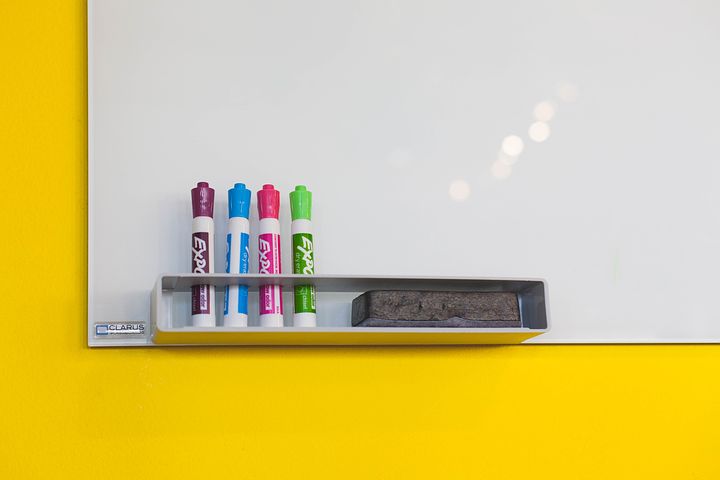Sharing Your Social Media Presentation
Have you ever been asked for your slide deck before or after you’ve given a presentation? Here are a few reasons why you may want to think twice before sharing next time.
What are you afraid of?
When I first started facilitating classes, I thought it was ridiculous how upset presenters would get when audience members asked for a copy of their slide deck. They fretted over their intellectual property and seemed sure that, at worst, the attendee was going to claim the deck as their own and begin presenting it all over town. At best, they were going to use it to (gasp!) learn and they may never contact the speaker again.
“What are you afraid of?” I remember asking. The value you bring is in your delivery, not your deck. Why not let them have it?
Oddly enough, I’ve taken a slightly different view over the years. Now I actually do hesitate to share my presentation – but not for the reasons you may think.
What you should be afraid of.
Now I spend most of my time speaking about social media practices and ethics – neither of which remains static for very long. Creating detailed materials is nearly impossible because by the time I’ve created something, there’s some part of it that’s likely out-of-date (or at least no longer the best option). This leads to a different presentation style that typically uses live information, but sometimes I will have an agenda or slide deck for the audience. When copies of the deck are requested, here’s what I worry about.
Do people think they can learn as much from the slide deck as the presentation?
Be honest – how often do you read through materials you pick up at conferences? Unless you’re specifically looking for something, those materials typically go into a drawer or a recycling bin, never to be seen again. When people ask for a slide deck, I often wonder if they plan to skip the presentation and “read it” later. If that’s the case, I’m setting them up for failure by sharing my presentation, because it isn’t nearly the same experience.
Is the deck a crutch – maybe it’s permission to multi-task?
Similarly, I have to wonder if an audience member who really wants the slide deck is planning on leaving early, working during the presentation or in some other creative way simply planning on not paying attention. If they think they can catch up on anything they missed with the slide deck, am I encouraging them to shirk their own professional development?
Did I put too much content in the slide deck?
I learned a very long time ago that no one wants you to read your slides to them. But I’ve seen even experienced presenters share content on a slide that’s just too detailed – it’s a better fit for a handout or a follow up email. If that’s why people are asking for the deck, that’s a good design note for the speaker!
And, of course, there are good reasons!
I’ve also learned that there are great reasons to share a presentation with your audience. I’ve seen actively engaged learners jot notes on a printed slide deck in ways that clearly help them make sense of the content (especially if during the presentation they’re popping over to social media platforms and applying what they are learning). I’ve watched teams work together at conferences, splitting up and attending different sessions and then using the slide decks to share what they learned with each other. It can be a tough decision, but if you keep the learner top-of-mind, you’ll make the right choice.
How should you decide?
I’ve learned over the years that simply asking why – or if “Why?” sounds too confrontational, you can ask how the materials will be used by the attendees – can help you provide the best resources to your audience and establish yourself as an education professional.
- If you have a presentation filled with valuable details and references, it may be a good idea to offer a handout instead. Most people would gladly take two pages of notes over a 30-page presentation.
- If the primary reason is for people who won’t be in attendance, you might offer recording the presentation for them instead.
- After all, your goal is to share the information with your audience in an effective way. They’re unlikely to read your slide deck and, even if they did, they wouldn’t have the same experience. This could be a great alternative.
And if the culture of the group or organization you’re working with is just used to getting slides, it may not be a battle you choose to fight! But you may arrange your content differently knowing their expectations.
Having a conversation about the needs of your audience is a great way to make the best choices and establish yourself as an expert.
How do you feel about sharing your presentation?
Author: Amy Jauman



I have no issues with a speaker sharing a presentation, either as a deck or a PDF. When I ask for one, it is because when I try to take notes during a session, I cannot capture everything. I want to listen to the speaker’s value-add to the slides, and record that, then have the base content in my possession so nothing is missed. If a speaker is willing to offer expertise, there should be no problem in sharing that. Having given many a conference session, I am happy to offer my presentation material so the attendee does not miss, or recall incorrectly, anything that was said. The presentation serves as a visual cue to remember the content delivered. Any speaker willing to “put out there” any information or best practices, should be honored to have someone ask for a copy of it. I have been very appreciative of those speakers who have shared their slides or content with me. I never re-purpose the slides for my own use and take credit for it. If I wanted to use a graphic, I would ask permission first.